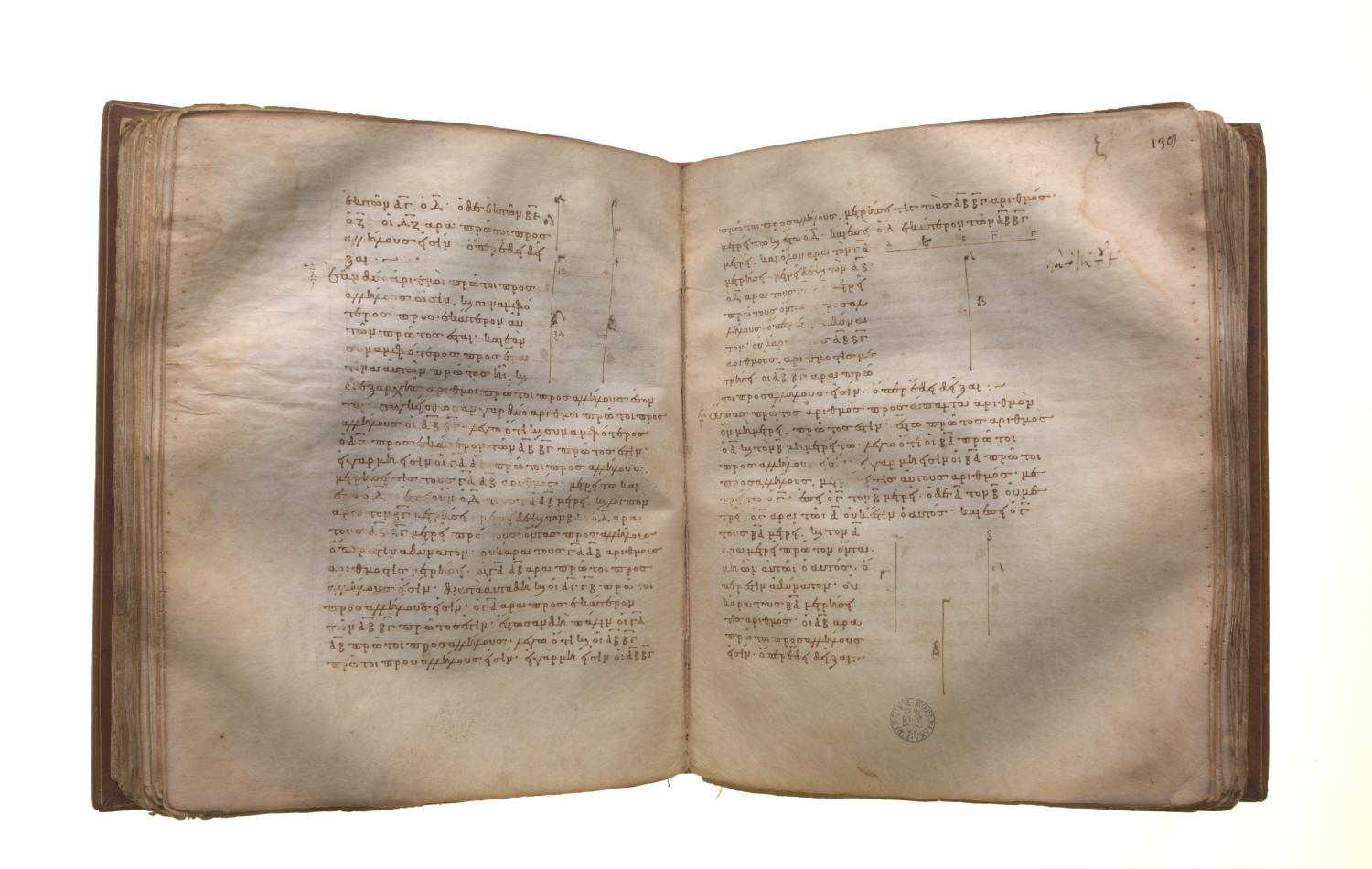Fundamentals of number theory: Book 7 Proposition 27
Translations
If two numbers be prime to one another, and each by multiplying itself make a certain number, the products will be prime to one another; and, if the original numbers by multiplying the products make certain numbers, the latter will also be prime to one another [and this is always the case with the extremes]. Let A, B be two numbers prime to one another, let A by multiplying itself make C, and by multiplying C make D, and let B by multiplying itself make E, and by multiplying E make F; I say that both C, E and D, F are prime to one another. For, since A, B are prime to one another, and A by multiplying itself has made C, therefore C, B are prime to one another. [VII. 25] Since then C, B are prime to one another, and B by multiplying itself has made E, therefore C, E are prime to one another. [id.] Again, since A, B are prime to one another, and B by multiplying itself has made E, therefore A, E are prime to one another. [id.] Since then the two numbers A, C are prime to the two numbers B, E, both to each, therefore also the product of A, C is prime to the product of B, E. [VII. 26] And the product of A, C is D, and the product of B, E is F.

